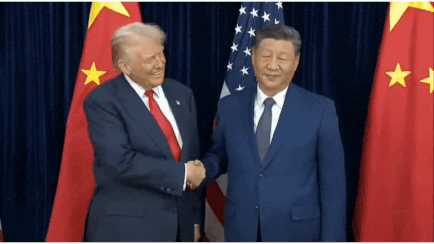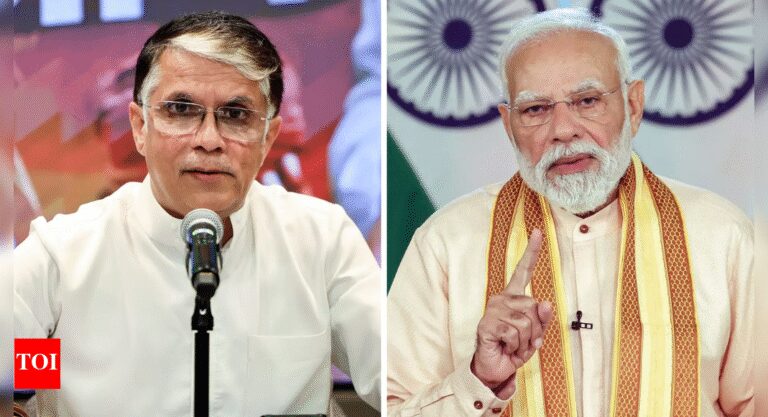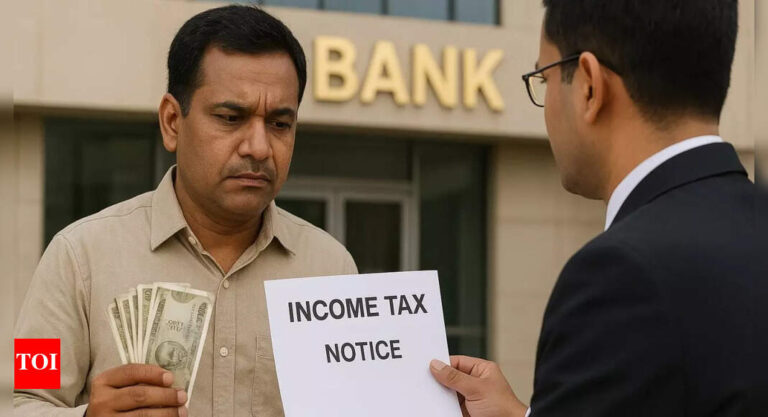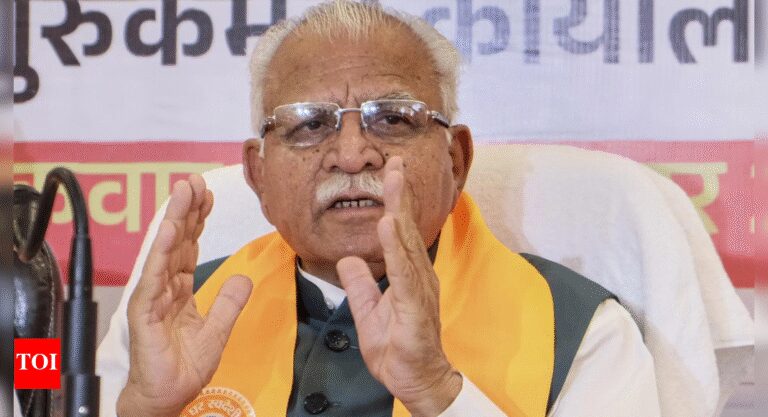
It takes a certain kind of genius to let Donald Trump take a victory lap, and still walk away holding the trophy. On Thursday, as Trump declared his meeting with Xi Jinping a “12 out of 10” success (because of course he did), the Chinese leader smiled politely, nodded in agreement, and pocketed a handful of US concessions like souvenirs from a diplomatic gift shop. While Trump gushed on Air Force One about “tremendous progress” and future golf-course diplomacy, Xi quietly secured a tariff rollback, suspended port fees, and a reprieve for Chinese tech firms.If this were a game of poker, Trump was busy telling everyone he’d won big, while Xi casually raked in the chips. With his trademark calm and a dash of subtle shade (“the recent twists and turns should be instructive,” he told Trump), Xi showed once again that in the delicate art of letting Trump claim the win while quietly tightening his own grip, China’s leader might just be the true master of the deal.
Trump vs Xi: The Busan showdown
Round 1: Trump declares victory (again)
Fresh off his meeting with Xi Jinping, Trump was in full salesman mode. From Air Force One, he called the talks a “12 out of 10” success, announced plans to visit China in April, and told reporters that “a lot of things” had been finalized. For his audience back home, Trump framed it as another “America Wins” moment — soybeans for farmers, promises to tackle fentanyl, and friendly photo-ops with a “great leader of a great country.”Following the meeting between the two leaders, China’s commerce ministry announced that it would suspend the rare earth export restrictions introduced in October for one year.
Round 2: Xi’s quiet power play
While Trump grabbed the headlines, Xi walked away with the hard gains. By flexing China’s near-monopoly on rare earths and its control over US agricultural imports, Xi secured tariff reductions, suspended port fees, and a pause on US export restrictions targeting Chinese tech firms. He even extended a tariff truce, all while maintaining the image of calm, rational statesmanship.Trump announced that he would reduce by half the 20% tariffs previously imposed on Chinese goods to pressure Beijing over fentanyl trafficking. The move, he said, lowered overall tariffs on Chinese imports from about 57% to 47%. Meanwhile, China’s commerce ministry confirmed that both sides agreed to extend for another year the tariff truce that was due to expire on November 10.
Round 3: Strategy vs showmanship
Trump’s strength lied in optics — dramatic handshakes, bold declarations, and a good headline for Truth Social. Xi, meanwhile, played the long game. Analysts said Beijing pocketed US concessions by exploiting Washington’s lack of clear strategy. “Tactics without a strategy,” as one expert put it, left Trump celebrating moves that effectively restored the pre-tariff status quo. In other words, Xi gave Trump his “win,” but only after resetting the board in China’s favor.“I think it’s an approach that can safely be described as tactics without a strategy,” NYT quoted Jonathan Czin, a fellow at the Brookings Institution who previously analyzed Chinese politics at the CIA saying.“Ostensibly, the goal was to address some of the meaty trade issues that had long bedeviled the relationship. Instead, the PRC side has successfully orchestrated a game of ‘whack-a-mole’ for the Trump administration,” Czin added.
Round 4: Managed stability, fragile peace
For now, both sides are enjoying what Beijing calls a “period of managed stability.” Xi even echoed Trump’s “Make America Great Again” rhetoric, playing to his ego while ensuring China’s interests were secured. Yet, the calm could be short-lived, a single new sanction or export ban could unravel the deal. As one analyst quipped, “These are the kinds of truces that look good on paper, until the next tweet.”
Final score: Optics to Trump, substance to Xi
Trump may have won the spotlight, but Xi emerged with tangible gains. One got the headline; the other got the leverage. While Trump touted “tremendous progress,” the outcomes showed Beijing securing key concessions behind the scenes, leaving Washington with more talk than trade wins.However, with no finalized agreement in place, the durability of the current situation remains uncertain.“Maybe I’m jaded because I’ve seen this movie too many times, but these are issues that are relatively easy to roll back and also to accuse the other side of bad faith,” NYT quoted a political science professor Ja Ian Chong saying.








